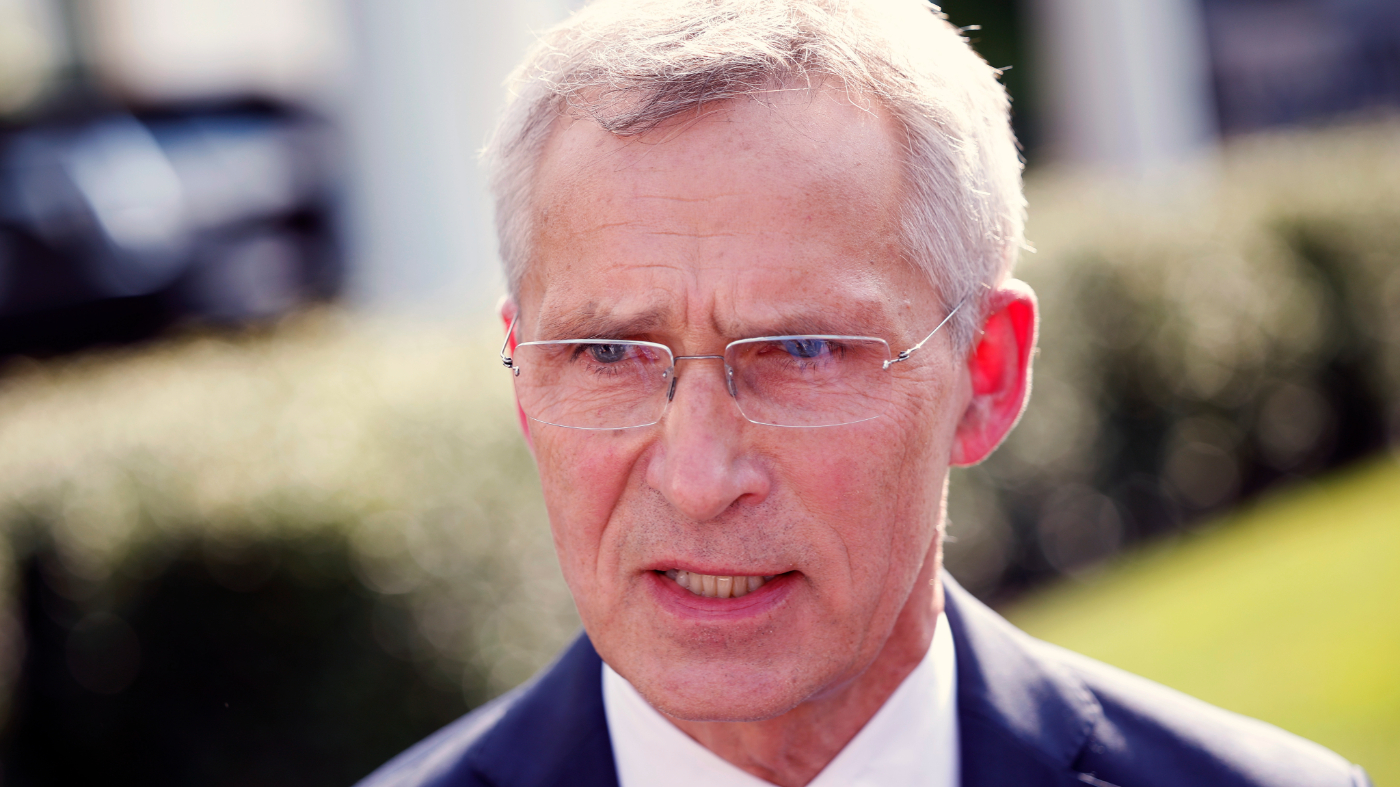NATO’s Stoltenberg is right: Peace through strength is the only way forward
NATO Secretary-General Jens Stoltenberg has been instrumental, even inspirational, in mobilizing united alliance support for Ukraine in the face of Russian aggression, as well as in shepherding through the accession of Sweden and Finland into NATO. Stoltenberg has now declared a novel information strategy regarding the West’s nuclear posture.
For decades, NATO officials downplayed the nuclear weapons component of its defense strategy for fear of appearing too provocative toward Russia. Nuclear-armed submarines operated stealthily, submerged and invisible to potential enemies and the rest of the world.
Last week, however, a U.S. Navy fast-attack submarine surfaced in Cuba’s Guantanamo Bay just a day after a flotilla from the Russian Northern Fleet arrived in Havana. The U.S. Southern Command (SOUTHCOM) said the sub was making “a routine port visit … conducting its global maritime security and national defense mission.”
When he was questioned about the episode, Stoltenberg replied that the current world situation — the declared strategic partnership between Russia and China and Vladimir Putin’s frequent threats — has necessitated nuclear transparency on the part of the West. He then lauded the Netherlands’ recent decision to invest in dual-capable fighter jets equipped to carry U.S. nuclear weapons.

“Transparency helps to communicate the direct message that we, of course, are a nuclear alliance. NATO’s aim is…a world without nuclear weapons, but as long as nuclear weapons exist, we will remain a nuclear alliance, because a world where Russia, China and North Korea have nuclear weapons, and NATO does not, is a more dangerous world.”
Despite NATO’s focus on European security, Stoltenberg expressed special concern with China’s rapidly mounting nuclear arsenal, which he said is expected to reach 1,000 weapons before the end of the decade. China’s support for Russia’s war in Ukraine exponentially escalates the danger.
“That means that in a not-very-distant future, NATO may face something that it has never faced before, and that is two nuclear-powered potential adversaries — China and Russia. Of course, this has consequences.”
Unfortunately, President Biden has made transparency a serious security detriment for the West, starting with his naked fear that helping Ukraine defeat Russia’s aggression would be perceived by Putin as escalation — and “that’s World War III.” Former President Trump was more than happy to jump on Biden’s Armageddon paralysis, charging that his national security policies are already “dragging America into World War III.”
Even more unfortunately, Trump would likely avoid confronting Putin at all, capitulating to his demands for at least part of Ukraine’s sovereign territory.
Last week, Biden again demonstrated his fear of offending Putin by declaring that his administration would not “make it easy” for Ukraine to join NATO, saying it “must fulfill the same criteria as other member states.”
Of course, Ukraine is not like “other member states.” It alone voluntarily agreed to surrender the Soviet nuclear weapons stationed on its territory in exchange for a security guarantee from the United States, the United Kingdom and the Russian Federation in the 1994 Budapest Memorandum.
Ukraine alone is bearing the brunt of Europe’s first major invasion since the Nazi rampage in the 1930s and 1940s. It is the only country directly defending the West against the challenge from the combined assaults of the authoritarian axis of Russia, China, Iran and North Korea.
If anything, Ukraine deserves special favorable treatment by NATO. Stoltenberg said as much during his U.S. visit last week, without directly contradicting Biden. “Ukraine will become a member of the Alliance when we have consensus … but we need all Allies to agree. In the meantime, we are building that bridge, we are helping to move Ukraine closer to NATO membership.”
He continued, “We removed the requirement for what we call a Membership Action Plan…that actually could take many years. We said that Ukraine doesn’t have to go through that phase … they can go straight to the next step and invitation, so we turned the whole membership process for Ukraine from a two-step process to a one-step process. That helps them to come closer to a NATO membership.”
Under Stoltenberg’s approach, Ukraine will join NATO sooner rather than later, and Article 5 will require the alliance’s direct involvement in the defense of Ukraine. A much-strengthened NATO will then confront a much-weakened Russia.
Strategic clarity will serve to deter not only Russia’s further aggression but China’s expansionism in the South China Sea. Not only Ukraine but Taiwan and the Philippines must pray that whoever the next Democratic or Republican president is, he or she will adopt the Stoltenberg policy of clarity rather than either Biden’s fearfulness or Trump’s callous indifference.
Joseph Bosco served as China country director for the secretary of Defense from 2005 to 2006 and as Asia-Pacific director of humanitarian assistance and disaster relief from 2009 to 2010. He is a nonresident fellow at the Institute for Corean-American Studies and a member of the advisory board of the Global Taiwan Institute.
Copyright 2023 Nexstar Media Inc. All rights reserved. This material may not be published, broadcast, rewritten, or redistributed.


